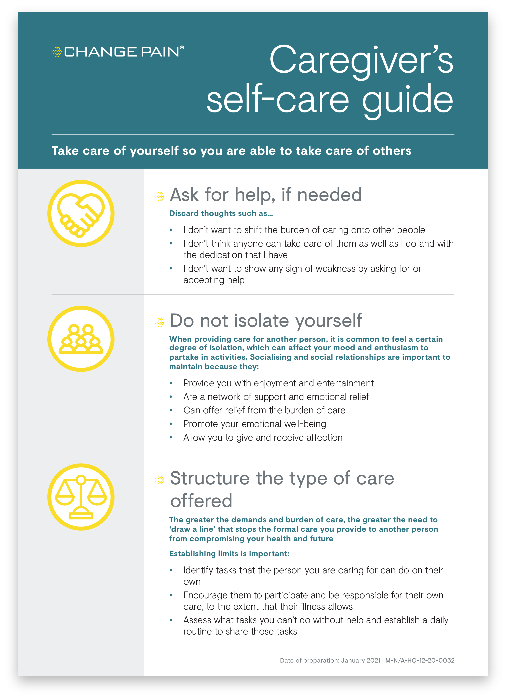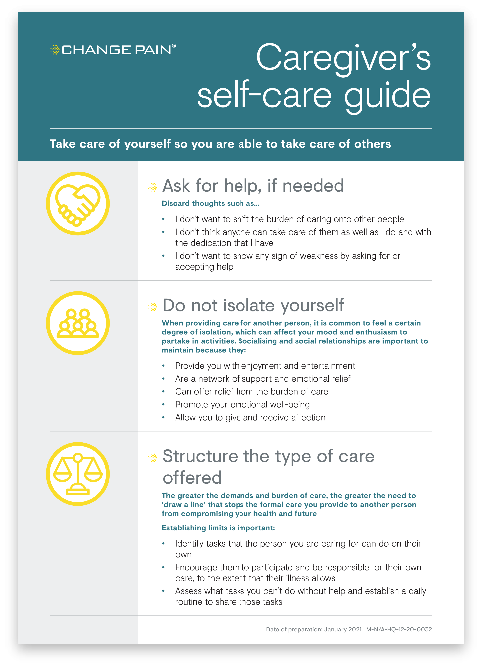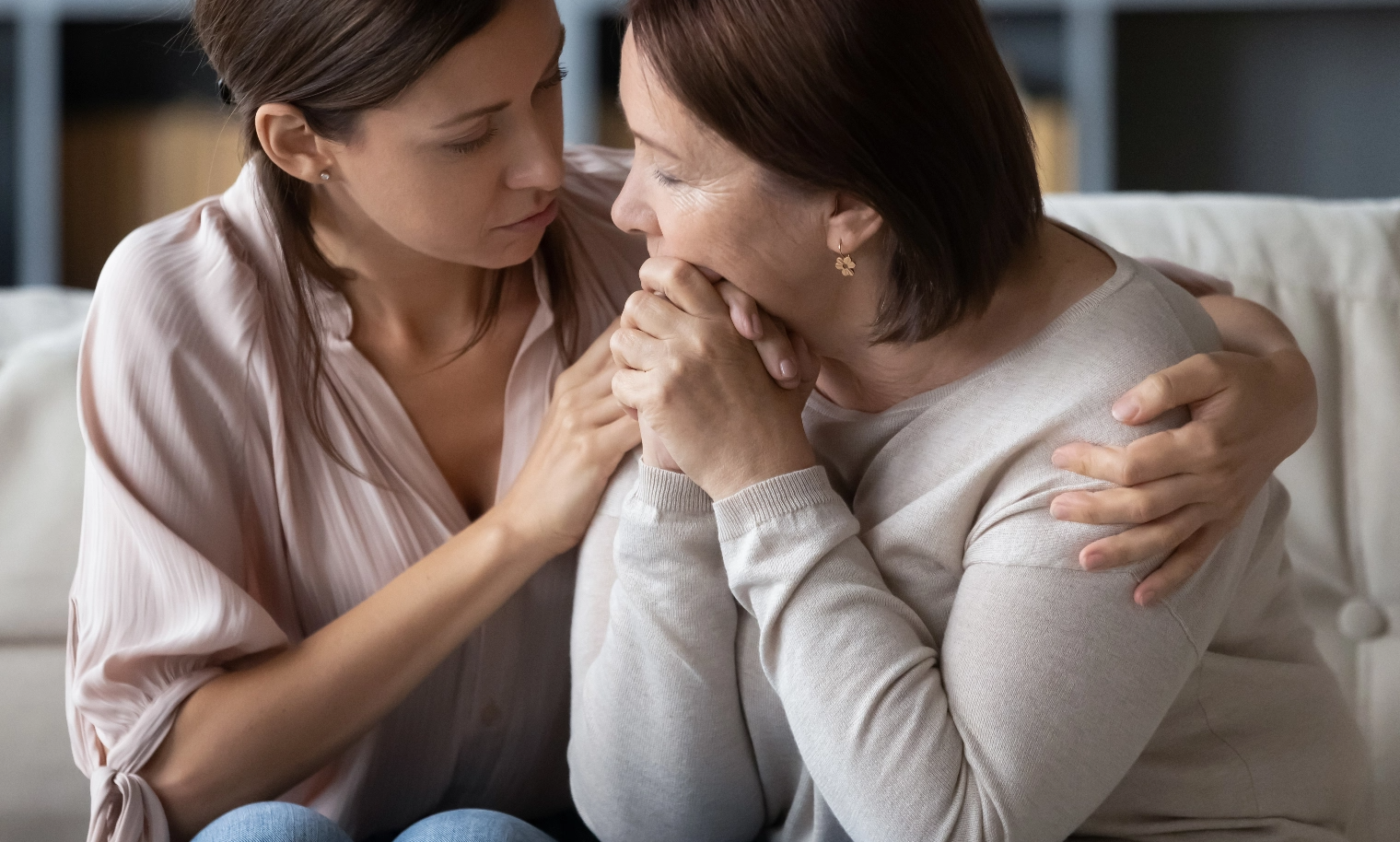Caring for another person with chronic pain often involves many unfamiliar tasks, such as monitoring pain and other symptoms, administering medications, dealing with side effects, helping the patient change their physical position, and communicating with healthcare professionals.1 In addition to meeting the physical and emotional demands involved in caring for someone, caregivers must adapt and cope with the alterations that occur in their own lives.1,2
33%
indicated their social life had been affected ‘a lot’ or ‘quite a lot’.1
A study about caregivers of people with chronic pain found that more than one in five caregivers believed their health had worsened quite a lot or a lot through caring for a person with chronic pain.

In addition, being a caregiver of a patient with chronic pain carries the risk of becoming a patient with pain themselves,6 which is why self-care is important to preserve the quality of life of the caregiver and of the person who is being cared for.
In addition, being a caregiver of a patient with chronic pain carries the risk of becoming a patient with pain themselves,6 which is why self-care is important to preserve the quality of life of the caregiver and of the person who is being cared for.

References
- Ojeda B, et al. Fam Syst Health. 2014;32:399–407.
- Monteiro da Cruz DAL, et al. Int J Nurs Terminol Classif. 2004;15:5–14.
- Rokach A, et al. Nurs Palliat Care. 2016;1:111–7.
- Pinquart M & Sörensen S. J Gerontol B Psychol Sci Sco Sci. 2007;62:126–37.
- Ferrell BR, et al. J Palliat Med. 1999;2:185–95.
- Clauw DJ, et al. Postgrad Med. 2019;131(3):185–98
M-N/A-UK-04-23-0015-MAY 2023



